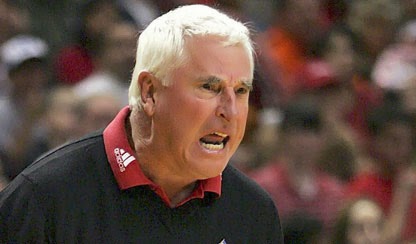by James Scott Bell
@jamesscottbell
 Last week my lovely wife and I were in New York for ThrillerFest, and as usual found time to enjoy some of the city. We did the Strand bookstore (where I scored an autographed Mickey Spillane from a spinner of used paperbacks), then walked up Park Avenue to my favorite building in all of New York: Grand Central Station, the beaux-arts beauty of midtown.
Last week my lovely wife and I were in New York for ThrillerFest, and as usual found time to enjoy some of the city. We did the Strand bookstore (where I scored an autographed Mickey Spillane from a spinner of used paperbacks), then walked up Park Avenue to my favorite building in all of New York: Grand Central Station, the beaux-arts beauty of midtown.
Why do I love it? Start with the clock tower sculpture, because it captures the robust spirit of classic New York, back a hundred years ago when the city was the unapologetic colossus of commerce. That’s why you have the three Greek gods above the clock. Mercury, god of merchants, dominates the piece, with Hercules (representing strength) and Minerva (representing the arts and professions) on either side. I love coming out of the subway stop, looking up and seeing this magnificence.
Inside Grand Central, the main concourse always seems larger than I remember. You can’t help thinking of Cary Grant at the ticket window in North by Northwest, or any of a number of movies from the 30s and 40s featuring New Yorkers getting on trains. There’s a dining concourse below, with our favorite oyster bar. Cindy and I shared a dozen, along with a nice chardonnay.
And we attended the International Thriller Writers Awards banquet, where I was honored to receive the award for Best E-Book Original (for Romeo’s Way). (And thank you for all the kind comments that have already been posted here at TKZ.) It was a delight for Cindy and I to share a table with the amazing Joanna Penn and her husband, Jonathan (Joanna, writing as J. F. Penn, was a Best E-Book Original finalist for her novel Destroyer of Worlds.)
The coolest thing about ThrillerFest is all the off-the-cuff conversation with fellow writers, usually at the hotel bar following the day’s proceedings. That, in fact, is where I caught up with brother John Gilstrap and one of our longtime TKZ commenters, Basil Sands. We were soon joined by weapons expert Chris Grall, and it wasn’t long before John and Chris were instructing us on the best way to cut people to ribbons with a sharp knife … and exactly what a body does when hit by a blast from a shotgun.
Also got to chat with TKZ emeritus Boyd Morrison and current blogmate Mark Alpert.
Another guy I always like to see at these conventions is Reed Farrel Coleman. Reed was an ITW Award finalist for his novel Where It Hurts. At the Awards “after party” I had a chance to ask him about his writing method, as I’d read in interviews that he describes himself as a pure “pantser.”
I started by asking what his novel was about, and Reed gave me the backstory of his lead character, Gus Murphy. How he was a cop with a family, but now is divorced and off the force, working a low-end job, drowning in grief due of the death of his son. “That’s where the book starts,” Reed said.
“So you start with a character and a set-up, and then start writing?” I asked.
Reed nodded, then added that he goes “over and over” the first fifty pages until he feels they are just right. Then he moves on.
“How many drafts to you do?”
“One,” he said, with a definite twinkle in his eye. Then he quickly added that he revises and revises as he goes along, so in effect he’s doing multiple “drafts” by the time it’s all wrapped up.
I wrote Reed a follow-up email. “My thought is that as you are making your way through after those first fifty pages, your brain is starting to come up with future scenes. IOW, the ‘outline’ is taking shape organically, in your imagination, and you start to write toward those scenes.”
Reed answered, “Yes, unconsciously, at least, knowing those early pages cold lets my mind work on an outline for the rest of the book. I don’t think of it that way, but it’s a fair assessment of what’s going on.”
And Reed, of course, understands beginning, middle, and end. He knows what has to happen for a character to pass through the “Doorway of No Return” and into the confrontation of Act 2. When I teach, I tell students the main character better be through that doorway, at the latest, by the 20% mark, or the book will start to drag.
Guess what happens at the 20% mark of Where It Hurts? Yep:
When I heard the sirens, I went back around to the front of the house and waited. But I was through waiting to make up my mind. I was in now, with both feet.
And just to amuse myself, I went looking to see if Reed, by way of his storytelling DNA, had included a mirror moment. You bet he did, and right in the middle where it belongs:
Was this, I wondered, what it was like coming out of a coma? Is that what Krissy, Annie, and I were doing? Were we coming around at last? Had enough time elapsed? Had we all finished acting out? Had we finally proved to ourselves and one another that no amount of pain or grief or self-flagellation or magical thinking or deals with God or guilt or fury would restore to us what we had lost? Was it okay to live again?
My goal as a writing instructor is to “pop the hood” on what writers have technically accomplished (even if they don’t realize how they did it), take it apart, and explain how any writer can assemble similar parts for a similar effect.
Reed’s method is one way to go about things. (See? I come in peace, my pantsing brothers and sisters!) By churning over those first fifty pages, Reed is firming up the foundation for his entire novel. By rewriting his previous day’s work, he’s letting his mind suggest scene possibilities that build upon that foundation. “Plotters” do the same thing, only the churning comes before the writing as they prepare a map, strategy and tactics.
The important thing is that the writer, sooner or later, brings order to the story stuff. That’s what structure is all about. It’s getting things lined up so the readers can best relate to the tale you want to tell them. Even more, the story you want to move them. Without order, no matter how “hot” or “creative” you feel about what you write, most readers are going to be frustrated or, worse, annoyed.
My advice: try to avoid that.
I love New York, but it’s always great to get back to L.A., where I am currently in the process of bringing order to my next Mike Romeo thriller.
What about you? Where are you in the “ordering” process?






